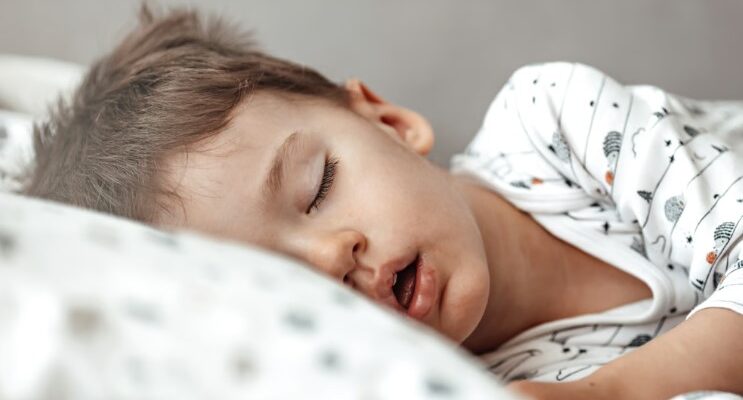Image Copyright @ Health News
In this article regarding Child’s Airway:
- Breathing through the nose should be encouraged.
- How you breathe can affect your sleep.
- Your child’s dentist can help identify signs of disordered breathing.
How Your Child Breathes Is Important for Child’s Airway
Nasal Breathing
It means breathing through your nose, and should be encouraged over mouth breathing, especially while asleep. For both children and adults, nasal breathing allows the lung to get more oxygen and the nose acts as a filter to help prevent some small particles in the air from getting to the lungs. Except during illness, every breath should be through the nose.
Mouth Breathing
It allows unfiltered, cold, dry air into the lungs. An open mouth can lead to distortions in how the upper and lower jaws form, crowded teeth and poor swallowing habits. Mouth breathing can sometimes lead to gum disease or tooth decay caused by dry mouth.
Parents can monitor their child’s breathing habits during the day to remind them to use their noses. While asleep, every breath should also be through the nose. If your child has trouble keeping their lips together, there may be a restrictions. They can be enlarged tonsils and adenoids, that makes it hard to breath through the nose. you can talk with your child’s pediatrician if you suspect your child has an issue.
The Importance of Sleep for Child’s Airway
A good night’s sleep is essential for everyone, especially children. Many children experience breathing problems during sleep without their parents even realizing it. Getting enough air through an unobstructed airway during sleep and while awake is a necessary step in developing good health for a lifetime, one night’s sleep at a time.
The amount of sleep your child gets is important, but good quality sleep is also critical. Sleep restores energy and helps physical growth and mental development. Not getting enough quality sleep can have negative consequences like behavioral issues, poor brain development and high blood pressure. Paying attention to your child’s airway and how they breathe while they are asleep and awake is crucial.

What Signs Should Parents Watch Out For?
The most obvious sign that a parent should watch for is mouth breathing, but caregivers should also notice if there are any breathing sounds, including snoring, during sleep. Breathing should be through the nose and silent.
While most parents don’t sleep in the same bedroom with their children every night, it is beneficial to watch your child’s sleep habits sometimes and keep an eye out for signs of disruption. Some other signs to watch for during sleep that show your child might be experiencing sleep-disordered breathing are:
- Unusual sleep position
- Bed-wetting
- Sweating
- Teeth grinding
- Waking up frequently
Your child may also show behavioral signs while they’re awake. Many children who are diagnosed with attention deficit hyperactivity disorder (ADHD) might be sleeping poorly-the behavioral signs are similar:
- Daytime drowsiness
- Trouble concentrating
- Irritability or moodiness
- Fidgeting and hyperactivity
Your Child’s Dentist Can Help Identify Problems
During a dental exam, your child’s dentist may also be able to identify common signs of disordered breathing, such as tongue positioning, mouth breathing and the shape of the mouth and face. Early detection of poor breathing habits and jaw and airway developments means treatments can be started before any health problems arise. If your child’s dentist suspects that your child may have sleep-disordered breathing, they can discuss treatment options directed at the source of the problems. This might be poor habits, allergies, sleep hygiene issues or other concerns the dentists, orthodontists, pediatrician and other medical providers can address.
There are many treatment options for improving your child’s health related to breathing during sleep, like a myo-functional trainer (similar to night guard), getting allergies under control, or some habit-correcting exercise to encourage nasal breathing. Your child’s pediatrician and dentist can work together to help you decide what’s best for your child.
Are you concerned about your Child’s Airway?
Do you live in South Jersey and has questions about your Child’s Airway? Rapha Dental in South Jersey can help you with that.
Contact us or call us at 856-829-8668 to schedule an appointment!
Copyright @ American Dental Association

